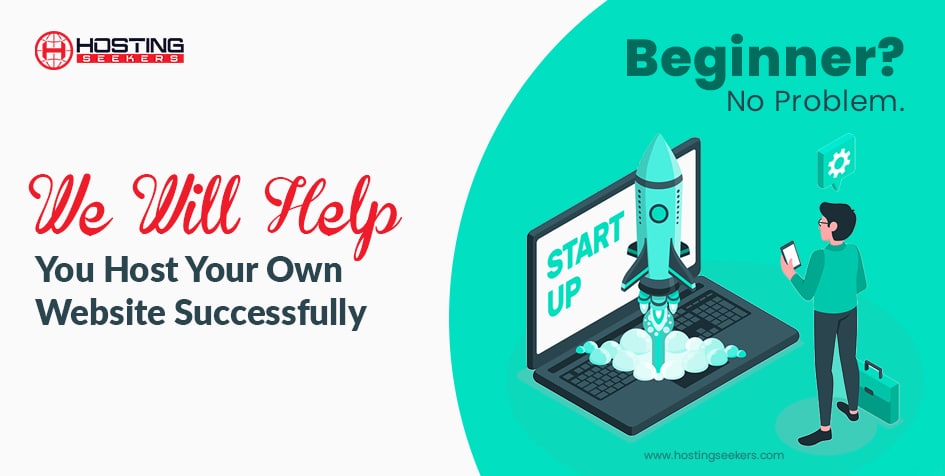
How to Host Your Own Website In 5 Simple Steps – Complete Guide
Web Hosting Tips Published on Date: May 20th 2021Table of Contents
- Introduction
- How to Host Your Own Website in 5 Simple Steps
- Step 1. Determine The Type of Your Website
- Step 2. Choose The Best Hosting Provider
- Step 3. Register Your Domain Name
- Step 4. Choose The Right Website Builder
- Step 5. Cross-check And Test Your Website
- Expert Techniques to Grow Your Business
- Conclusion
In this digital age, having a website is a crucial element for any business, personal brand, or creative endeavor. It’s your online calling card, a virtual showcase of who you are or what your business is all about. But have you ever wondered about what it takes to host your own website? In this blog we will explore the five simple steps to host your own website.
Here is How to Host Your Own Website in 5 Simple Steps
Step 1. Determine The Type of Your Website
Step 2. Choose The Best Hosting Provider For Your Business
Step 3. Register Your Domain Name
Step 4. Choose The Right Website Builder
Step 5. Cross-check And Test Your Website
It is recommended to follow each and every step carefully so that you can host your own website successfully. Let’s start!
Step 1. Determine The Type of Your Website
Before you dive into the technicalities of hosting your own website, the first and fundamental step is to determine the type of website you want to create. Your website’s purpose and goals will heavily influence the choices you make throughout the entire process. Select the type of web hosting which fits right for the website you want to create.
|
Hosting Type |
Best For |
|
Shared Hosting |
|
|
VPS Hosting |
|
|
Dedicated Hosting |
|
|
Managed Hosting |
|
| Cloud Hosting |
|
Step 2. Choose The Best Hosting Provider For Your Business
Once you’ve determined the suitable type of web hosting, the next crucial step is selecting the best hosting provider for your business. To make an informed decision, consider essential factors such as estimated monthly traffic, expected business growth, required space, level of customization, website speed, type of information, IP addresses, technical support hours, guaranteed uptime, scalability, and bonuses like a free domain name/SSL certificates.
Step 3. Register Your Domain Name
When it comes to hosting your own website, selecting the perfect domain name is paramount as it represents your business in the digital world. Think of it as your online address – the first thing people see and remember about your organization. Ensuring you choose the right domain name that aligns with your brand and message is crucial.
Step 4. Choose The Right Website Builder
With your top-notch hosting service and a carefully selected domain name in place, it’s time to embark on the exciting journey of building your website. You can leverage contracted hosting services or explore various website builder platforms to achieve this.
You can refer to any of the following website building platforms:
- Wix
- Weebly
- Squarespace
- Duda
- GoDaddy
- WordPress
- Shopify
- Big Commerce
Step 5. Cross-Check And Test Your Website
Once your website is built and ready to go, the next crucial step is to conduct comprehensive testing to ensure its smooth functionality across various devices and web browsers. This meticulous process ensures that your website provides a consistent and user-friendly experience, regardless of the platform your visitors are using. Also, make sure to test your website on popular web browsers like Safari, Firefox, Chrome.
Expert Techniques to Expand and Grow Your Own Website
Congratulations on launching your website! Now, it’s time to reach out to your target audience and make a lasting impression. To ensure your website’s success and expand its reach, here are some expert techniques and best practices to implement:
- Make your website visually attractive
- Improve the loading speed of your website
- Optimize your website and content to rank higher
- Write an attractive “About Us” page and use catchy headlines on the overall website
- Promote your website to various social media platforms using engaging content
- Interview relevant and well-known people in your niche
- Cover long-tail keywords in your website
- Provide easy-to-see, clickable contact information
- Optimize your website well for mobile and other devices
- Pay attention to 4xx errors, duplicate URLs, mixed content, HTTP & HTTPS issues.
Summing Up
Hosting your own website is a journey filled with learning and exploration. It’s a pivotal step that can catapult your business or personal brand into the digital realm, opening the doors to endless possibilities. It’s important to remember that each step is a building block towards creating a strong online presence that resonates with your target audience.